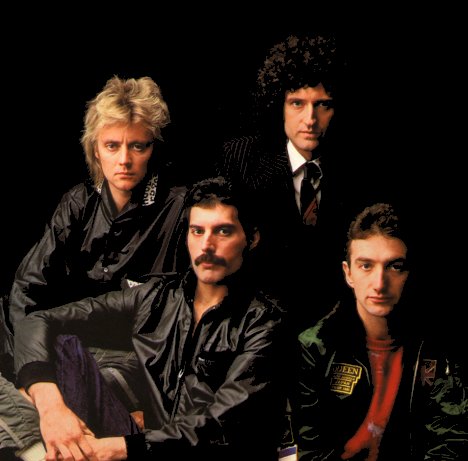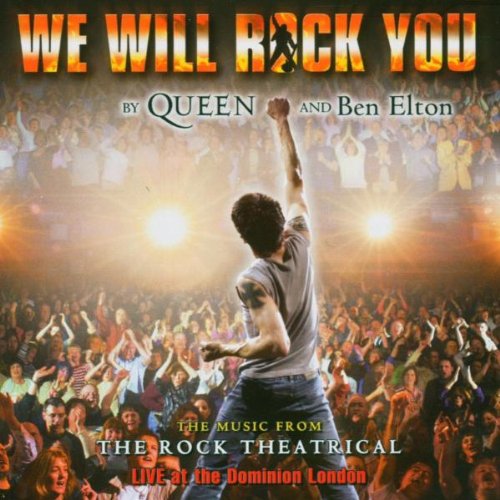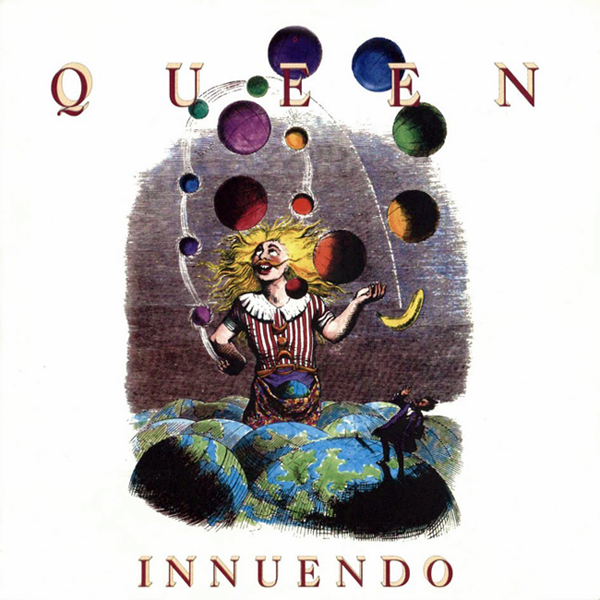12-20-2005 – Western Mail (Cardiff) – Queen biography
No-one quite knew how to take Queen in the 1970s with singer Freddie Mercury’s histrionics and their catchy, poppy tunes, almost making them a rock group parody. But as time went on and they started churning out driving, stadium-filling rock anthems such as We Will Rock You and Bohemian Rhapsody, Queen found a place in the hearts of rock fans everywhere.
The essence of the band was Mercury, the dynamic white- suited, strutting, preening, sweat- soaked lead singer who punched the air as he led Queen through their considerable repertoire of stirring rock creations.
He was born Farrokh Bulsara in Stone Town, Zanzibar, to Indian Parsi parents, Bomi and Jer Bulsara.
His family had emigrated to Zanzibar in order for Bomi to continue his job as a middle-ranking cashier at the British Colonial Office there.
They would later move to London and Farrokh (now Freddie Mercury) enrolled at Ealing Arts College where he was a room mate with singer Tim Staffel.
Staffel sang in a band, Smile, which also included astronomy student and lead guitarist Brian May (born in London, 1947) and drummer Roger Taylor (born in Norfolk, 1949) who was studying to be a dentist.
Staffel left to join a rival outfit, Humpy Bong, and Mercury, who had sung for groups such as Sour Milk Sea and Ibex, joined Smile.
In 1971 bassist John Deacon (born 1951, Leicester) joined the band which had now changed its name to Queen.
The group played in and around London, learning valuable lessons on playing to crowds.
In Brian May the group had a guitar expert in more ways than one.
He built his own guitar (the ‘Red Special’) using a mahogany mantelpiece and motorbike springs with the help of his father Harold.
The band’s first album released in 1973, Queen, did not attract a lot of attention though it contained the lively Keep Yourself Alive.
The following year Queen II contained the very Queen-like The Severn Seas of Rye and the group joined Mott the Hoople on a nationwide tour, their dazzling live performances winning them new fans across the UK from Swansea to Aberdeen. In 1974, Sheer Heart Attack contained top notch tracks such as Killer Queen, then in 1975 the group’s seminal album was released A Night at the Opera. It contained the theatrical, unforgettable Bohemian Rhapsody, which (released again in 1991 after Mercury’s death), spent a total of 14 weeks at number one in the UK.
The album also contained I’m in Love with My Car and You’re My Best Friend.
After A Day at the Races was released the next year (containing the concert favourite Somebody to Love) the group played to 150,000 fans in Hyde Park, underlining their qualifications as one of the founders of Stadium Rock.
Queen recorded the soundtrack to the film Flash Gordon in 1980, by now one of the most popular bands on both sides of the Atlantic.
In 1985, after a period out of the limelight, the group played in the Live Aid concert and completely stole the show with a live performance many put down as one of the most exciting in rock history. In the 1990s rumours began to surface that Freddie Mercury was suffering from Aids but he flatly denied them. He worked on the album Innuendo then issued a statement admitting he had the illness and in November 1991 he died aged 45.
His memorial concert was broadcast live on TV and radio in 76 countries worldwide in 1992. By Robin Turner: Rock samples:In 2002, Brian May, John Deacon and Roger Taylor collaborated with Ben Elton on the Queen musical We Will Rock You. The group has sold more than 190 million records world wide and many of their singles and album tracks, often critically panned in the 1970s, are now regarded as classics.
Queen band members have become multi-millionaires, with Roger Taylor putting his Surrey mansion up for sale in 2003 for pounds 6m.
Taylor had for many years maintained a vast collection of sports and vintage cars which prompted the track I’m in Love with My Car.
Brian May, married to ex- EastEnders actress Anita Dobson and the rest of the band decided to resume touring in 2004.
They hired one of rock’s best known signers, Paul Rodgers, (founder member of Free and Bad Company) to ‘do the impossible’ and stand in for Freddie Mercury.



